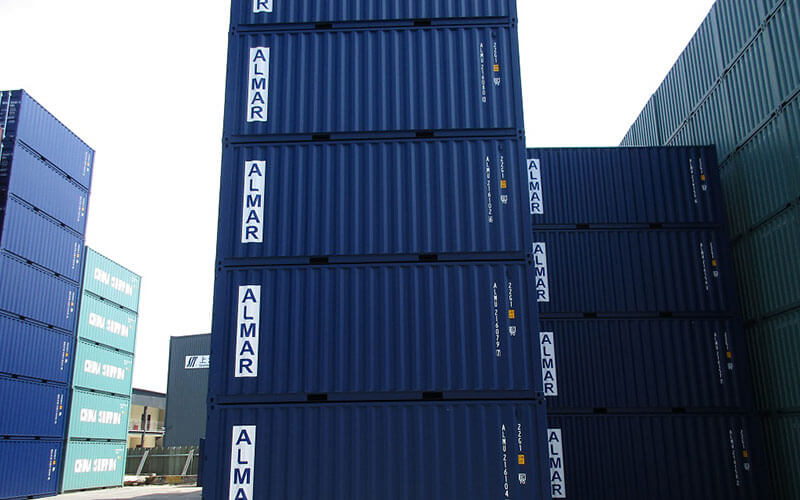With a rising interest in converted shipping containers, there has been a drastic increase in container fraud and bogus operators, particularly in South Africa. Many people go online to see what the shipping container cost will be. They find a website that features what appear to be brand spanking new containers at exceptionally low prices and decide to buy.
Like phishing, which entails fraudsters purporting to be from reputable companies inducing people to reveal banking and other details, container fraud relies on people’s trust and is virtually impossible to track down.
In addition, this is largely a cash industry, so people are expected to pay the shipping container cost before it is delivered. Because containers are generally sold in large volumes from working depots, inspections are difficult. Also, entry barriers for newcomers to the industry are very low; all that is needed is a website and a phone number of some sort and you can start buying and selling containers.
So how does container fraud happen?
Modus Operandi to Make People Buy Shipping Container Online
Shopping online today is easy – sometimes too easy. Whether you are looking for a frying pan, a new outfit, or converted shipping containers, you are likely to find a website that offers exactly what you want. While there are many reputable online stores, it is so easy to create a website and sell items online, it is often difficult to identify those that have been set up to swindle us.
This is how easy a fraudulent operation can be to set up and manage.
- The first step that a fraudster, or group of fraudsters, takes is to build a website using pictures of new shipping containers advertising them at very low, competitive prices.
- You Google “shipping container cost” or “buy shipping container” and find the site. It all looks above board, so, depending on the contact details supplied, you phone the so-called company or email them requesting a quotation.
- The response of the fraudsters not always the same, but often the quote will be sent without bank details for payment. They fraudulent operator may ask for confirmation of your bank details.
- Bearing in mind that the container industry is largely cash based, the fraudster will then supply his bank details and request payment in full and as soon as payment is made, he withdraws the cash and closes the bank account.
This makes it very difficult to track down fraudsters and virtually impossible to hold them accountable. But there are some warning flags to look out for when you buy shipping container units.
Top Ten Tips to Avoid Container Fraud
- Shop around to see what companies in general are charging for shipping containers (or converted shipping containers if this is what you are looking for). If you find a source that is offering containers at a price that seems to be too good to be true, it often is!
- Only deal with companies that have been in business for some time and have a historical reputation you can track – www.containerfraud.co.za
- Ensure other customers are happy with their service, but don’t rely on their website references or testimonials as these are easy to fabricate. Google+ and Facebook referrals are often more reliable, but it’s always a good idea to try and make direct contact with several customers to verify their authenticity.
- Ideally you should meet the seller in person before committing yourself to the deal. You should also insist of inspecting the container prior to payment. Don’t be bullied into the sale by claims that this is the last container at this price, or anything similar.
- If you phone the person (and you should), if the seller has a distinctly foreign accent, this might be an alarm bell. Some fraudsters operate from other countries, having no intention of delivering the shipping containers they offer for sale. This also makes it impossible to inspect the container and meet the seller.
- Contact container associations like CTIA www.containa.org and COA www.containerownersassociation.org to see if the company is registered. If not, ask the seller if they belong to another associations or, if not, why not. In South Africa, sites such as containerfraud.co.za are trying to help users identify reliable and fraudulent operators – https://www.containerfraud.co.za/almar
- If there isn’t a landline number on the website, this could be a sign that the company has no physical presence. This should be another alarm bell.
- If there is a physical address on the website, don’t take it for granted that it is genuine. Rather check on Google Maps to make sure it really is a valid address.
- Check the creation date of the website domain using a domain search website like Who Is www.whois.com. If the website was created in recent months, this too should be an alarm bell. Beware!
- If you are asked to confirm which bank account you are going to use for payment, don’t provide this information other than possibly stating which financial institution you use. Chances are they are buying time while waiting to open up a suitable bank account to be able to get your payment.
Only Deal With Reliable Suppliers
Almar Container Group has been a reliable supplier of used steel shipping containers for more than 30 years. If you have any questions regarding the validity of a quote for containers for sale or containers for rent, or even if you want a reference for an alternative container supplier, please contact us as we will be able to provide an honest and objective opinion and provide correction information.

